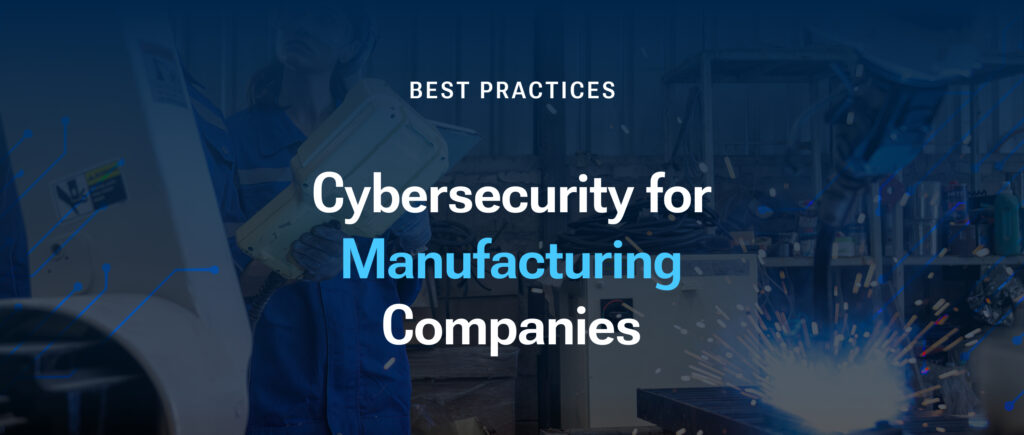In today’s increasingly digital manufacturing environment, protecting sensitive business data is more critical than ever. With more systems becoming interconnected, manufacturers are more vulnerable to cyber threats. Cybersecurity best practices play a crucial role in ensuring that the manufacturing sector stays protected from these ever-evolving threats.
Why Cybersecurity Matters in Manufacturing
Manufacturing companies deal with massive amounts of data, including proprietary designs, customer information, and operational logistics. A data breach or cyberattack could disrupt production, harm customer relationships, and even lead to financial ruin. Furthermore, cybercriminals are increasingly targeting manufacturers due to their valuable intellectual property and reliance on technology for day-to-day operations.
Manufacturing companies are not immune to ransomware, phishing, or other sophisticated cyberattacks. As the industry moves toward automation, IoT (Internet of Things), and AI-driven processes, implementing robust cybersecurity measures is non-negotiable.
Key Cybersecurity Threats Facing the Manufacturing Industry
To understand how to protect against cyber threats, you must first understand the types of threats that exist. Some of the most common cybersecurity risks in manufacturing include:
- Ransomware: This malicious software locks down critical systems or data, demanding a ransom for its release. In the manufacturing industry, ransomware can halt production lines and lead to massive financial losses.
- Phishing: Attackers often use phishing schemes to trick employees into giving up sensitive login credentials, enabling access to restricted company networks.
- Insider Threats: Employees, whether intentional or accidental, can expose company networks to cyber threats by mishandling sensitive information or falling victim to social engineering attacks.
- Supply Chain Vulnerabilities: Manufacturers often rely on external vendors and partners. A breach in any part of the supply chain can compromise the entire production network.
Cybersecurity Best Practices for Manufacturing Companies
Here are some of the top cybersecurity best practices to protect your manufacturing company:
1. Implement Multi-Layer Security Measures
A multi-layer approach ensures that even if one layer of protection is breached, other defenses will help prevent further damage. This includes firewalls, intrusion detection systems (IDS), and endpoint security solutions. Network security is one of the most critical components of multi-layered protection.
2. Regular Software Updates and Patch Management
Many cyberattacks exploit vulnerabilities in outdated software. Ensure that all software systems are updated regularly, including operating systems, production management software, and any IoT devices. Regular patching helps close security gaps that hackers might exploit.
3. Educate Employees About Cybersecurity
Human error is one of the leading causes of data breaches. Conduct regular training sessions to educate employees on cybersecurity best practices, such as recognizing phishing emails, creating strong passwords, and using email help services securely. A well-trained workforce can act as the first line of defense against cyber threats.
4. Conduct Regular Security Audits and Penetration Testing
Regular security audits help identify vulnerabilities before attackers can exploit them. By conducting penetration testing, you simulate an attack on your network to assess its security strength. These audits and tests provide valuable insights and allow you to improve your defenses accordingly.
5. Establish a Strong Data Backup Strategy
Backup data solutions are vital for manufacturing companies. In the event of a cyberattack or data breach, having secure backups ensures you can quickly recover important data without severe downtime. Implement automated backup systems and store backup data in multiple, secure locations.
6. Control Access to Sensitive Data
Not every employee needs access to every part of the company’s network. Use role-based access control (RBAC) to limit access based on the employee’s role. This ensures that sensitive data is only accessible to those who truly need it, reducing the risk of insider threats.
7. Use Managed IT Services
For many manufacturing companies, managing cybersecurity internally can be overwhelming. Outsourcing to a managed IT service provider allows you to benefit from expert cybersecurity solutions while focusing on your core operations. Managed IT services provide continuous network monitoring, disaster recovery planning, and real-time threat detection, keeping your business safe from emerging threats.
The Role of Managed IT Services in Cybersecurity
Manufacturers can’t afford downtime or data breaches, which is why partnering with a managed IT service provider is essential. Managed IT services offer tailored cybersecurity solutions, ensuring that your network is protected around the clock. This proactive approach includes continuous monitoring, security updates, and disaster recovery strategies.
A reliable managed IT service can help your company stay ahead of cyber threats by:
- Providing 24/7 network monitoring to detect potential vulnerabilities.
- Offering backup data solutions to ensure your critical data is protected.
- Managing disaster recovery protocols to minimize downtime in the event of an attack.
- Training your employees on best practices for cybersecurity and data protection.
Conclusion: Secure Your Manufacturing Business with Best Practices
Implementing cybersecurity best practices in your manufacturing company isn’t just about preventing attacks—it’s about ensuring long-term success by protecting your data, production lines, and customer trust. As cyber threats continue to evolve, having robust cybersecurity solutions in place is essential.
If you’re looking to strengthen your company’s cybersecurity, Advance Network Design is here to help. Our managed IT services offer comprehensive protection tailored to the unique needs of the manufacturing industry. Contact us today to learn more about how we can safeguard your operations.
FAQs
1. What are the most common cybersecurity threats in manufacturing?
Manufacturers face threats like ransomware, phishing, and insider attacks, which can disrupt production and compromise sensitive data.
2. How often should manufacturing companies conduct cybersecurity training?
It’s recommended to conduct cybersecurity training at least quarterly to keep employees aware of the latest threats and best practices.
3. What role do managed IT services play in cybersecurity?
Managed IT services provide continuous monitoring, security updates, and disaster recovery strategies, helping manufacturers stay secure.
4. Why is data backup important in manufacturing?
Data backup solutions protect against data loss due to cyberattacks or system failures, ensuring critical information is recoverable.
5. How can manufacturers protect their IoT devices from cyberattacks?
Securing IoT devices involves regular updates, strong passwords, and isolating these devices from critical networks to prevent unauthorized access.

